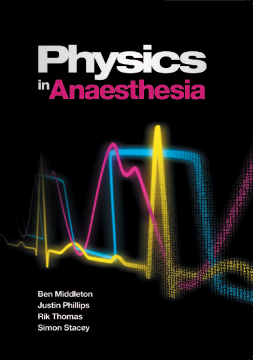
Additional Information
Book Details
Abstract
From reviews:
"Its warm and familiar style of writing makes it accessible for all. Throughout
each of the 29 chapters, there was a real feel that the authors knew what was
needed of you... Many of the questions I spent hours flicking through appendices in other books
for were clearly answered here....
There is a nice feel to this book. It is as if someone has sat down and really
thought about each chapter. It feels more like your clever friend than a
textbook. Current curriculums have been considered, as have common themes and
questions...
In conclusion, although I have always believed that examination topics, with all
randomness and occasional obscurity, can and never will be fully covered by a
solo text, this book comes close. It is an excellent core text for anyone
needing to learn physics in anaesthesia."
European Journal of Anaesthesiology, April 2014
"Overall, Physics in Anaesthesia succeeds in providing a concise and easy to read review text covering what has historically been a dry and difficult to present topic. The book is easy to understand and sufficiently covers most topics one would expect from such a book. It seems well suited for those studying for exams, but it can also serve as a good reference text for all levels of anesthesia providers."
Anesthesiology, September 2013
"This is an excellent refreshing and practical text when compared with various older textbooks on physics for anesthesia…. The text is written in a concise, uncomplicated, and easily understood manner, and representative clinical scenarios are often used…. In my view, this is a superb teaching textbook on basic physics…. I would recommend this textbook to our Anesthesia Post-Graduate Program!"
Canadian Journal of Anesthesia (2012) 59: 1161–1162
"...a refreshing change from the more traditional textbooks with their pages of derivations and small, bland, obscure figures..."
Technic: The Journal of Operating Department Practice, May 2012 Volume Issue 3
"...this text provides a fantastic resource for those wishing to consolidate their learning... A major strength of this book is its clear writing style. The well organised text is supported by excellent diagrams and highlighted key terms. There are clear learning objectives at the beginning of each chapter, with a short summary and a multiple choice question test at the end... Overall, this is an excellent resource and essential revision tool."
Nursing Standard, June 2012, 30: vol. 26 no. 41
"This is a book specifically for anesthesia professionals written by Anesthetists, Physicists and Perfusionists. After reading the book cover to cover I can say without reservation, it is most certainly the easiest book on physics I have ever read. The simple and intuitive layout, easy to understand diagrams, relevant objectives and the quizzes at the end of each chapter help me expand my understanding of topics I was already a master of. That is saying something. This book is not just a 'must have' for students of anesthesia and any prospective anesthesia students looking to brush up before training but also for the working Nurse Anesthetists as a quick and easy to use reference."
www.nurse-anesthesia.org, June 2012
Physics in Anaesthesia caters especially for those who consider themselves non-physicists. It covers the FRCA syllabus in an informative and accessible way from the very basics, and provides an important link between theory and practice.
Worked examples highlight the relevance to clinical practice, and along with graphs and charts, make the basics of physics understandable not only to doctors, but also to operating department practitioners and students. It does not assume that readers will have A level physics.
Two different types of self-assessment questions at the end of each chapter will test understanding of the key concepts, while a summary section for each topic is ideal as a rapid refresher, highlighting any problem areas.
